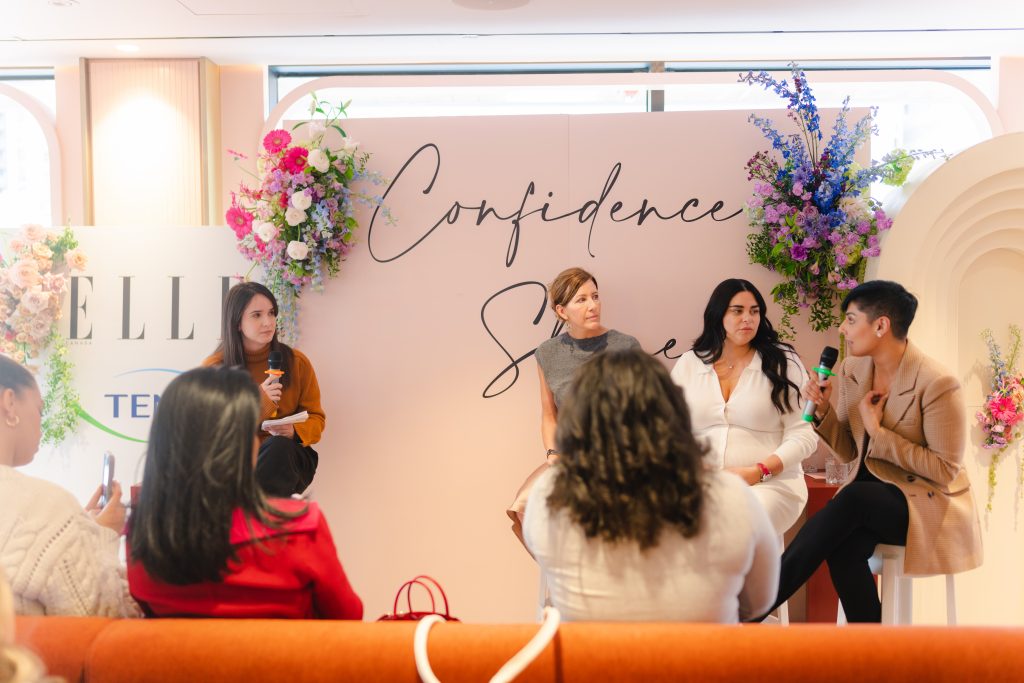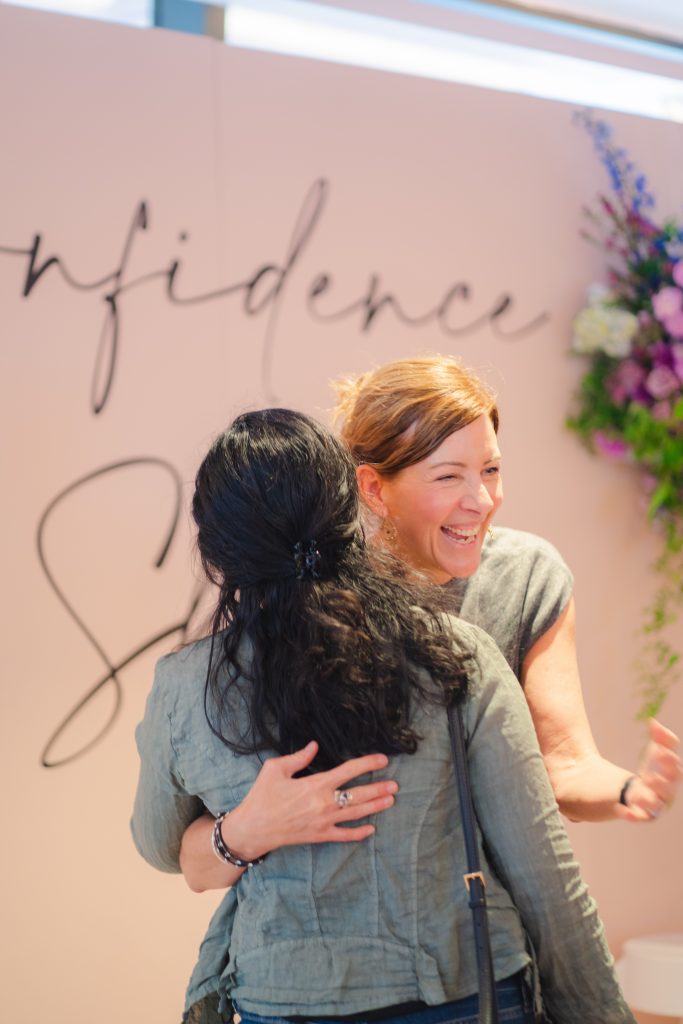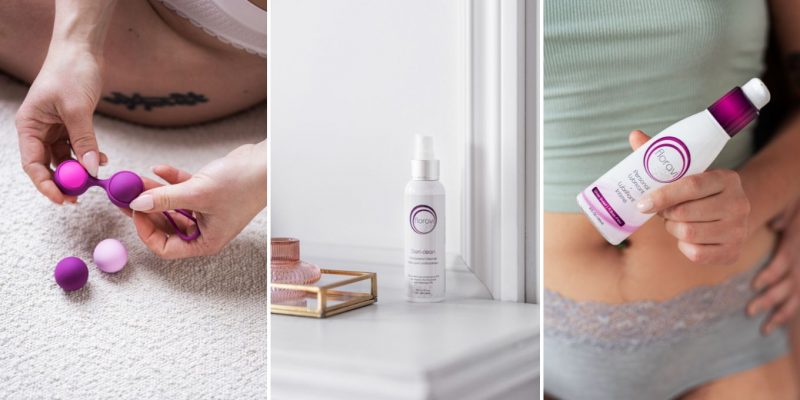Life and Love
ELLE Was There: Let's Talk About Bladder Health
ELLE and TENA came together for an afternoon of manis, massages and moving the needle on women’s issues.
by : ELLE Canada- Dec 15th, 2023
Ever peed a little bit when you laughed, coughed, sneezed or jumped? Incontinence (bladder leak) is way more common than you might think, affecting one in three women during their lifetime. Whether it occurs during pregnancy or after childbirth, is a symptom of perimenopause or a side effect of taking certain medications or accompanies regular constipation, there are a myriad of times when incontinence can happen. Everyone’s experience with it is unique and personal, but one thing unites our shared reality: Because of stigma, we don’t often talk frankly about the ways in which our bodies change and the ins and outs of bladder health.
To mark Bladder Health Awareness Month in November and help lift the shame from important women’s health issues, ELLE Canada hosted a pampering-meets-panel-discussion event—in partnership with TENA, Canada’s #1 incontinence brand—at Majesty’s Pleasure in Toronto’s Yorkville neighbourhood.

As guests were treated to some luxe self-care moments (mini massages and manicures for everyone!), the event’s host, ELLE Canada’s digital content manager Melissa Fejtek, dove into a candid conversation between real women about their evolving bodies and ending the ever-present stigma. The esteemed speakers? Kim Vopni (a.k.a. “The Vagina Coach”), who has been helping women for more than 15 years with her DIY pelvic-floor exercise programs and one-on-one coaching for women experiencing pregnancy, motherhood and menopause; Roxy Earle, a TV personality, entrepreneur and co-founder of The Ana App, designed to increase positivity and confidence when it comes to cycle health and fertility; and mindset and wellness expert and author Sonia Jhas.

Together, the group openly chatted about everything from breaking the stigma to bladder-health management, including what “incontinence” actually means (since so many of us are in the dark on the topic). “We’re often told that it’s just a part of being a woman—it just happens when we get older; it just happens when we’ve given birth,” said Vopni. “And those can be reasons why it happens. But [though] it’s not normal, it’s very common and very treatable.”

There’s no doubt that stigma plays a major role in this culture of suppression. But what if instead of keeping this prevalent experience shrouded, we held it up to the light? “Isn’t it hard enough being a woman? Why are we perpetuating the hush-hush nature of something that is in fact not normal but so common?” asked Jhas. “The stigma around it really puts us in a position where we’re hiding behind closed doors. We’re trying to troubleshoot the problem covertly, we’re trying to make it seem like there isn’t anything wrong and we’re laughing it off when, really, there is shame a lot of the time and there is a feeling of failure. The stigma piece is so unnecessary.”
Opening up about our incontinence struggles to friends, family and trusted acquaintances not only means releasing ourselves from those insecurities but allowing others to unburden themselves as well. Given how much time we spend online, this sentiment also applies in digital spaces. In an age where social media mores have evolved into ones that encourage transparency, not just flawlessness, these platforms—whether large-scale or more local—can be tools to break down shame on the individual level. “When people see that there are others who are building businesses and exercising and doing all the things that they thought they couldn’t do because they were limited or embarrassed or ashamed because of their pelvic floor, it provides them with a safe space and some inspiration to see what’s possible,” Vopni explained.

This dedication to radical honesty is top of mind for Jhas too; she’s committed herself to bridging the gap between being an expert and someone who’s more forthcoming about the “messy-pretty” parts of her life. She said that by sharing this level of candour across her platform, she hopes “people can feel a lot less alone, a lot less damaged and a lot less hopeless.”
Gaining the confidence to get help with incontinence issues can be yet another hurdle in the bladder-health experience. Vopni recommends booking a session with a pelvic-floor physiotherapist, a provider she calls “the most underused women’s health resource that we have.” The good news is you don’t need a referral from your physician, and it can be an opportunity to learn more about your body in a safe space.

Ultimately, overcoming the shame and holistically addressing bladder-health issues is about connecting with yourself in a meaningful way. “It is important when you’re dealing with physical challenges like incontinence to be intentional every day about connecting [your] mind and body,” said Jhas, who offers journaling, meditation and breathwork as helpful tools. “If you can dedicate a part of your soul on a daily basis to connecting with yourself—even to just understand how you are doing—that’s important to know.”

Newsletter
Join our mailing list for the latest and biggest in fashion trends, beauty, culture and celebrity.
Read Next

Culture
These Pea, Mint and Spinach Fritters Are the Ultimate Spring Snack
Served with a little creamy yogourt sauce on the side, these fritters are an ideal meal, appetizer or shareable snack.
by : Margaux Verdier- May 7th, 2024

Here’s What to Pack For Your Next Vacation—So You Don't Have to Stress About It
10 things you need to travel well-prepared, and in style.
by : Lauren Knowles- May 7th, 2024

Beauty
Summer Prep: How to Feel Confident in Your Swimsuit
New Size-Inclusive Swimwear: Gillette Venus partners with The Saltwater Collective to Launch a Collection for Any Body
by : ELLE Canada- Apr 24th, 2024





